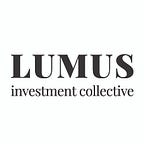Having a family and starting your own business? It is not impossible!
Founder Talks with CEO Ajda Mrzel Kaluza
Ajda Mrzel Kaluza is a mother, a former banker and now she turned to the startup world. After working in a bank for more than a decade, she founded Arvio — a software company that develops tools for real estate professionals, banks, insurance companies,… and other people who are interested in the real estate market.
Their software can automatically determine the value of the real estate, its appropriateness for collateral generates a short report, or just automatically collects information for an expert to review.
What is her story about the startup Arvio? Read more below!
1. Ajda what were your first steps to building Arvio?
Arvio was founded in 2018 and at first, the idea was rather grand: to develop a product that completely automates the mortgage approval process. It seemed like something we could do and I still believe we will get there… eventually. In the meantime, we had to pivot, and pivot again and then endure. We got funding from Slovenia Enterprenurship Found, but most of the development was founded by our savings and bootstrapping.
The idea for Arvio is based on the problems I encountered during my role as a Head of valuation and collateral in the largest Slovenian bank. The manual process to establish the value of real estate collateral is staggering. If you take into account the fact, that people doing the manual work are highly educated people, the concept of gathering data manually is even harder to accept. So, I discussed the idea with my partner and we decided to go for it.
Comparing my work engagements at the time when I was working in a bank and now, I have to say that the time in the bank was harder for the family. There was a lot less flexibility (no Covid so no remote working options). A lot of the time I had to work late or during the weekend. It is still a lot of work now, but now I can be more flexible, for example, I can take an afternoon off and spend it with the kids.
2. What was the hardest and best part of building the startup?
The hardest part is to keep trying when the people you talk to about the idea do not share your vision of the future. Remember, if the idea is obvious and easy to implement someone else would have done it by now.
The best part is the freedom to choose who you work with and which problem to solve. You can dedicate your time to things you believe matter. After working in a big organization for many years, that is something you learn to appreciate.
3. What about your plans and vision for the future?
I see the future, but it keeps changing but it involves Christmas with my kids and husband and a large business deal in 2021.
4. Who do you ask, when you need advice?
First on the list is my partner. And I do work with advisors that have helped me with the startup. We have an amazing startup ecosystem in Slovenia — ABC Accelerator, Tovarna podjemov Maribor, and several big corporations that are open to working with a startup, for example, Nova KBM and Zavarovalnica Sava.
From the start, I have been working with mentors, though they change through time. I usually take advantage of mentorship programs provided by the ecosystem and find people that have experience in a specific field. For example, I currently have a mentor for establishing our selling process and for internationalization. I also often contact people that have experience in a specific topic I am interested in and they are usually willing to help.
5. Do you have any recommendations (books or podcasts) for founders? Share with us!
One of the recent books I have read about startups is The Hard Thing About Hard Things: Building a Business When There Are No Easy Answers (by Ben Horowitz). The book tells it like it is — no sugarcoating.
In the last year, I keep returning to The 7 Habits of Highly Effective People (by Stephen Covey) that can put things in perspective. The startup business is not just all-nighters with a big deal at the end. It is oftentimes a lot of disappointments and a few successes — and the perspective is what you need in those moments to keep you going.
6. Do you have any message or advice for females in our region who want to build their company?
I think it is a lot easier if you “step out of the office” and connect with like-minded people. The startup support network is a great place to find your mentors, polish your ideas, and boost morale — we all need that from time to time.
